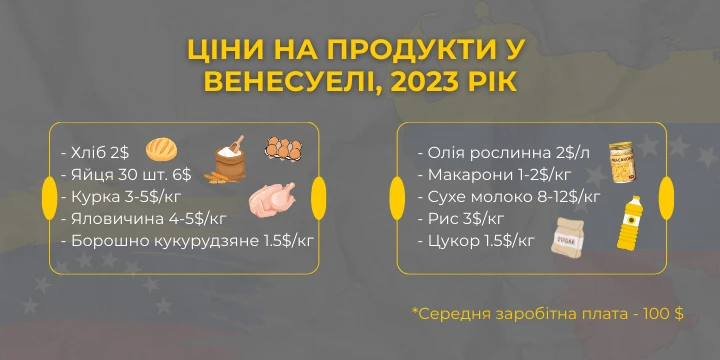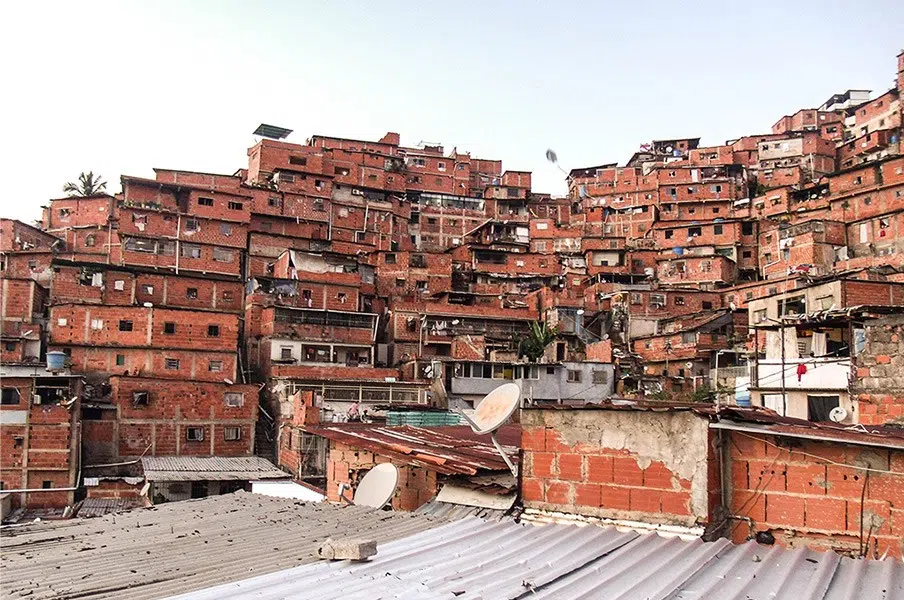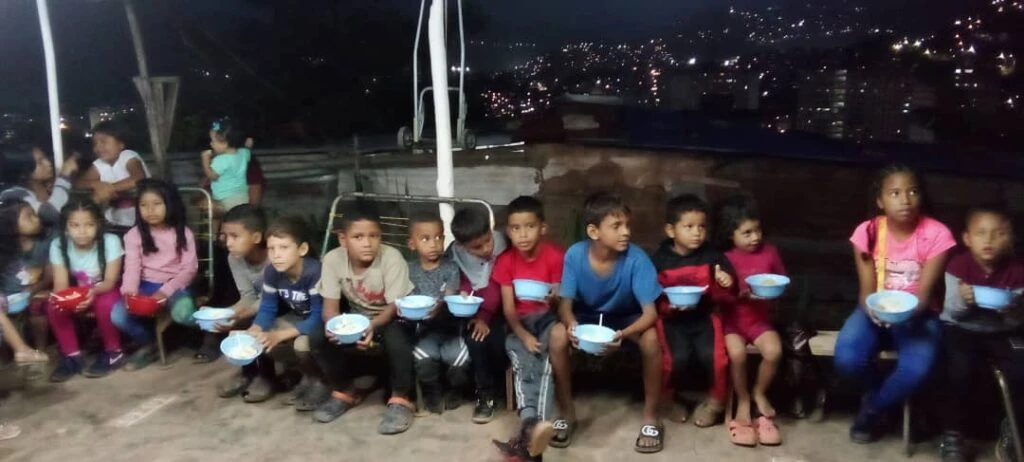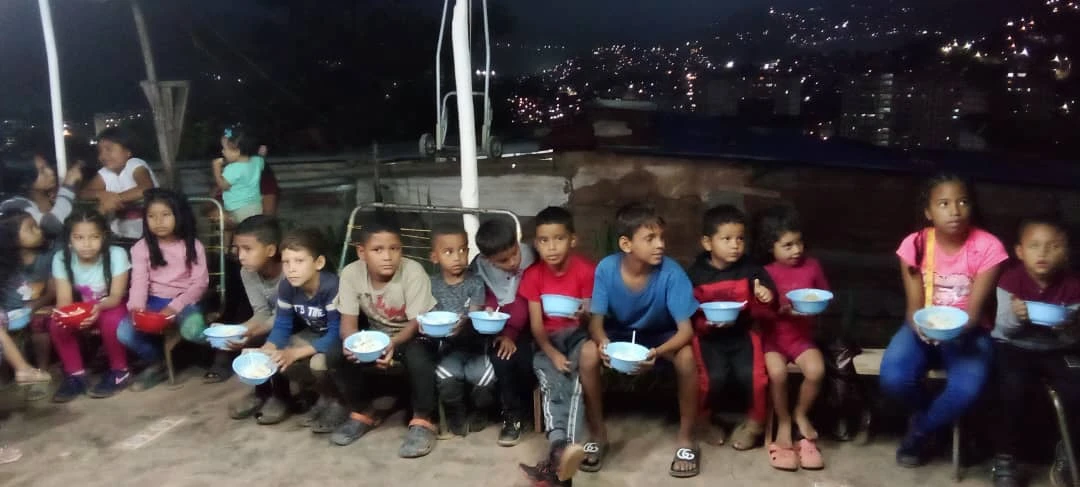CITA in Venezuela: Helping people in total crisis
25 October 2023
Christ is the Answer International Ministry (CITA) is helping the needy in Venezuela, a country that, after the establishment of socialism, has suffered a complete socio-economic collapse.
Why did a country with the largest oil reserves in the world, favorable conditions for the development of agriculture and tourism, mineral resources, access to the sea, and a favorable geographic location end up in this state?
And how does CITA’s international mission improve the lives of Venezuelans in a time of crisis?
Venezuela today: people are malnourished and sick without medicine
The official minimum wage is less than $4. Depending on the position, the salary can go up to $40-50. And with additional bonuses from the state, it can reach an average of $100 per month. That’s how much a certified secondary school teacher earns in Venezuela’s capital, Caracas.
The country officially uses the US dollar as a stable currency. The country is experiencing hyperinflation. In 2018, its level reached 1,300,000% per year.
The real consumer basket per month per family is about $500.
People with disabilities and pensioners receive $30 per month from the state, and the same amount is paid for utilities per month. However, the quality of these services is poor, with frequent water shortages and unreliable electricity.
700 is the cost of burial or cremation in the country. There is no state ambulance service; firefighters are called instead.

“There is food, medicine and other goods, but most people cannot afford proper nutrition, basic medicine, toiletries, clothes and shoes. All social sectors – education, health care, utilities and public services – are in a deplorable state.
It is dangerous to get sick, and many people cannot afford the prices of medicines, tests and medical consultations. The simplest illness can be a death sentence,” said Yulia and Henry, a family of ministers who have lived in Venezuela for more than 10 years.
A consultation with a doctor costs at least $35. The cost of eyeglasses starts at $20. A blood test costs $10 to $25, and an ultrasound costs $35.
The lack of food affects the health of the country’s residents. According to a 2017 Bengoa-Enconvi survey, the majority of respondents (64.3%) said they lost weight in 2017 – an average of 11.4 kg. The poorest segments of the population lost the most weight.
Other data from the survey:
- The quality of food has worsened and portions have become smaller.
- Nine out of ten Venezuelans cannot afford their usual food.
- 8.2 million people eat two meals a day or less.
- The diet lacks foods rich in iron, vitamins and other nutrients.
- As a result, Venezuelans have begun to eat “poor man’s food.” Yucca, a cheap root vegetable, replaced potatoes.
According to the statistics of the World Population Review at the beginning of 2023, Venezuela ranks first in the world in the ranking of countries with the highest crime rate.
As a result of the economic crisis in the country, young people in Venezuela suffer from frequent mental disorders – depression, panic attacks, suicide attempts and anxiety disorders. The population has lost hope, distrusts the Church and practices the occult.
“It is very difficult for foreign missionaries to work here in terms of documents, but in general there is complete freedom to preach the Gospel. Wherever there are local Christians doing their best to help the needy, the Church is very active,” Yulia said.
Historical background of the economic decline in Venezuela
According to the Energy Business Review, Venezuela sits on 300 billion barrels of oil. For comparison: Saudi Arabia – 270 billion, Canada – 171 billion, Russia – 80 billion.
The heyday of demand for Venezuelan oil came at the beginning of the 20th century, when automobiles became fashionable in the United States. In 1908, Venezuelan President Juan Gomez distributed oil concessions to his close friends, who sold them to foreign companies. In this way, the proceeds of the national wealth were distributed among a narrow circle of cronies, i.e., a non-inclusive system was initially established.
In 1920, oil accounted for 2% of Venezuela’s exports; in 1935, it was 91%.
The oil industry began to suck all the investment and professionals out of the country, while agriculture and industry remained neglected.
Elites that were disconnected from the society began to emerge, and the society itself began to hate the status quo more and more.
It was against this background that people’s mistrust of the ruling elites and foreign investors, mainly from the USA, was formed. Later, this factor became the reason for widespread support among the country’s population for nationalization decrees.
During the Second World War, Venezuela experienced another oil boom. By 1945, oil production in Venezuela had increased by 60%. But by the mid-1950s, the flow of petrodollars began to dry up as large oil fields were discovered in Saudi Arabia and Iraq.
In addition, the U.S. imposes quotas on imported oil to support domestic producers. In the 80’s, due to changes in the world economy, oil prices fell sharply.
And already in the 90s, Venezuela is plunged into a massive economic crisis.
The government then began to regulate currency circulation and prices, leading to corruption and black markets.
Typically, an economic crisis is followed by a political crisis.
In 1998, the populist Hugo Chávez, a former militant who was passionate about ideas from the writings of Lenin, Marx, Mao, and other communist leaders, and who promoted red ideology as much as possible, appeared on the political scene.
When he took over Venezuela, the socialist Hugo Chavez had super profits from oil, but at the same time he squandered the country’s economic potential: he increased social benefits, gave away the budget, increased taxes and nationalized companies. All this led to an economic downturn.
Valentyn Krasnoperov, founder of the educational initiative “The Last Capitalist” and political analyst, also attributes the causes of the economic crisis in Venezuela to the historical and cultural-economic background that explains the popularity of socialist ideas in Latin America in general and in Venezuela in particular:
“The indigenous population of Latin America, the Indians, was characterized by a communal social form of economy and centralized state power. Before the arrival of the Spanish conquistadors, the local tribes were in a primitive system with collective use of land, sharing of booty among all members of society. The most developed state formations in this area had a centralized government.
For example, the Inca Empire used mita – compulsory gratuitous participation of the population in the construction of roads and structures, work in the mine, grazing and agriculture. In addition, officials took goods from artisans and peasants, stored them in government warehouses, and then redistributed them to the people. Thus, the traditional economy and the centralist nature of the state formations influenced the way in which the economic thinking of the population was shaped”.
CITA’s response to poverty in Venezuela
“We became involved with Christ Is the Answer (CITA) Mission Ministries relatively recently; my husband and I have known Mission Director Taras Sen for over 20 years.
Initially, we discussed the possibility of printing evangelistic calendars, but there have been difficulties with the printing company. So, for the past few months, the mission has been helping to feed children from poor neighborhoods – “barrios”.

These are shacks and houses built spontaneously on the slopes of the mountains surrounding Caracas. It is not safe for strangers or even the police to enter. It is said that these neighborhoods are less evangelized than the Amazon jungle. Brothers and sisters of our church live and work there. They gather and feed children in their homes and conduct children’s ministries.
The church itself has a Christian boyscout ministry called “Kingdom Explorers,” in which the children of barrios are actively involved. The CITA Ministry paid for T-shirts for some of them. The ministry provided eyeglasses and equipment for the eye clinic, and the organization of this ministry continues.
Working with the children is very important, they are the new generation of Venezuelans. They don’t know what it’s like to live outside the socialist value system, they see a lot of crime, they need everything. Giving them guidelines for life and feeding them seems to me to be a priority,” said Yulia.

“I can say that the financial help that Christ is the Answer Mission sends to the church community is invaluable, especially for the children, most of whom live in very poor neighborhoods and whose families have very few resources.
And those in charge of the various evangelization projects with the children are very grateful for the help. Before, they had nothing to offer the children at the meetings, but now they can give them candy or juice,” Henry shared.
With the help of the ministry, local church workers in the Venezuelan capital of Caracas are able to reach about 200 children of all ages from six barrios. The aid began in July 2023.
Local pastors look forward to continuing to work with the mission, which is relevant due to the great crisis in the country, and hope to see many more lives changed.
Sources:
https://www.bbc.com/ukrainian/features-47108929
CITA Press Center.
